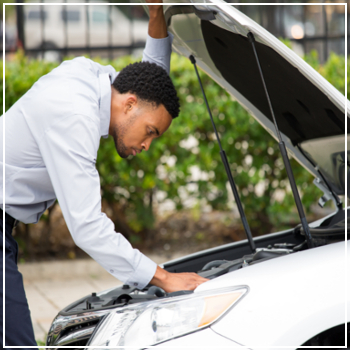 When you turn the key in the ignition and your car refuses to start, it's more than just a minor hassle. Maybe the engine cranks slightly, or perhaps you notice warning lights flashing on the dashboard, but the car just won't roar to life. Understanding why this happens and how you can diagnose the problem is essential for getting back on the road.
When you turn the key in the ignition and your car refuses to start, it's more than just a minor hassle. Maybe the engine cranks slightly, or perhaps you notice warning lights flashing on the dashboard, but the car just won't roar to life. Understanding why this happens and how you can diagnose the problem is essential for getting back on the road.
Battery Problems
One of the most common reasons a car won't start is a dead battery. This often happens if you've accidentally left the headlights on overnight or if you haven't driven your vehicle for a while. Since the alternator charges the battery while the car is running, a faulty alternator could also be the culprit, requiring replacement. Additionally, batteries older than five years or those experiencing electrical issues can lose their charge. Besides the engine failing to start, a dead battery might also cause the interior lights, radio, and other electronic systems to malfunction. Here are some steps you can take:
- Attempt to charge the battery
- Inspect the battery terminals for corrosion or loose connections
- Use jumper cables to jump-start the car
If none of these solutions resolve the issue, it’s best to bring your vehicle to a professional to have the electrical system thoroughly inspected and the battery replaced if necessary.
Ignition or Starter Malfunction
Sometimes, even when the battery appears fine, the car still won't start. In such cases, the problem could lie with the ignition switch. A telltale sign is when the dashboard lights and radio function normally, but the engine fails to turn over completely. Alternatively, the car might have a faulty starter, which is the electric motor responsible for initiating the engine's movement. With this issue, the ignition will engage, but the starter won't allow the pistons and crankshaft to begin turning. You might hear a clicking sound or other unusual noises when trying to start the car, yet the lights and electronics remain operational.
Engine Complications
Given the intricate nature of the engine and its role in powering the car, several engine-related problems could prevent your vehicle from starting:
- Fuel supply issues: Your car might have run out of gas or experienced a malfunction in the fuel pump relay. In such cases, the engine might sputter briefly before stalling. Make sure to check the fuel gauge regularly to avoid this scenario.
- Flooding: An excessive amount of fuel can flood the engine, dampening the spark plugs and preventing them from igniting properly. To remedy this, try cranking the engine repeatedly to clear out the excess fuel.
- Electrical malfunctions: Blown fuses or issues with the ignition system can disrupt the flow of electricity. Replacing the fuse should help restore functionality.
- Timing belt or chain failure: If the timing belt or chain breaks, it can sever the connection between the engine's two halves, causing the pistons to move irregularly.
If you suspect an electrical fault, one potential workaround is to adjust the transmission gear position. Try shifting into neutral and attempting to start the engine; if that doesn’t work, shift into park and try again to ensure proper electrical contact between the transmission range selector and the ignition system.
Even after trying various fixes, if your car remains stubbornly immobile, it's time to book an appointment for a detailed inspection and repair at DaSilva’s Auto Body. Don’t let unresolved car troubles hold you back—professional assistance can make all the difference.
Semi Flatbed Trailer,Three-Axis Balance Type Semi Trailer,Dropside Semi Trailer,Platbed Semi Trailer
KingKong, Intelligent Equipment (Xuzhou) Co., Ltd , https://www.impimaq.com
